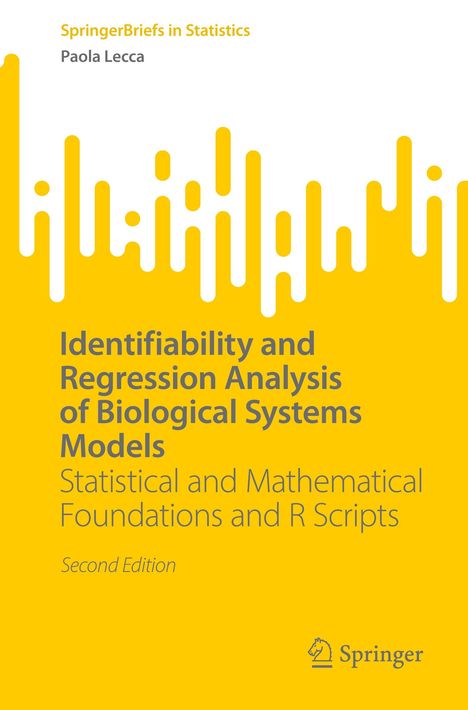Paola Lecca: Identifiability and Regression Analysis of Biological Systems Models, Kartoniert / Broschiert
Identifiability and Regression Analysis of Biological Systems Models
- Statistical and Mathematical Foundations and R Scripts
(soweit verfügbar beim Lieferanten)
- Verlag:
- Springer Nature Switzerland, 11/2024
- Einband:
- Kartoniert / Broschiert, Paperback
- Sprache:
- Englisch
- ISBN-13:
- 9783031747472
- Artikelnummer:
- 12094427
- Umfang:
- 136 Seiten
- Nummer der Auflage:
- 24002
- Ausgabe:
- Second Edition 2024
- Gewicht:
- 219 g
- Maße:
- 235 x 155 mm
- Stärke:
- 8 mm
- Erscheinungstermin:
- 10.11.2024
- Hinweis
-
Achtung: Artikel ist nicht in deutscher Sprache!
Klappentext
This richly illustrated book presents the latest techniques for the identifiability analysis and standard and robust regression analysis of complex dynamical models, and looks at their objectives. It begins by providing a definition of complexity in dynamic systems, introducing the concepts of system size, density of interactions, stiff dynamics, and the hybrid nature of determination. The discussion then turns to the mathematical foundations of model structural and practical identifiability analysis, multilinear and non-linear regression analysis, and best predictor selection, and their algorithmic procedures.
Although the featured examples mainly focus on applications to biochemistry and systems biology, the methodologies described can also be employed in other disciplines such as physics and the environmental sciences. Readers will learn how to determine identifiability conditions, how to search for an identifiable model, and how to conduct their own regression analysis and diagnostics without supervision.
This new edition includes a concise, yet comprehensive treatment of the main artificial intelligence methods which can be used for parameter inference in models of complex dynamic biological systems. It emphasizes the most efficient solutions for generating synthetic data that augment the training data and which are indispensable for machine learning procedures.
Featuring a wealth of real-world examples, exercises, and R codes, the book addresses the needs of doctoral students and researchers in bioinformatics, bioengineering, systems biology, biophysics, biochemistry, the environmental sciences and experimental physics. Familiarity with the fundamentals of probability and statistics (as provided in first-year university courses) and a basic grasp of R are assumed.

